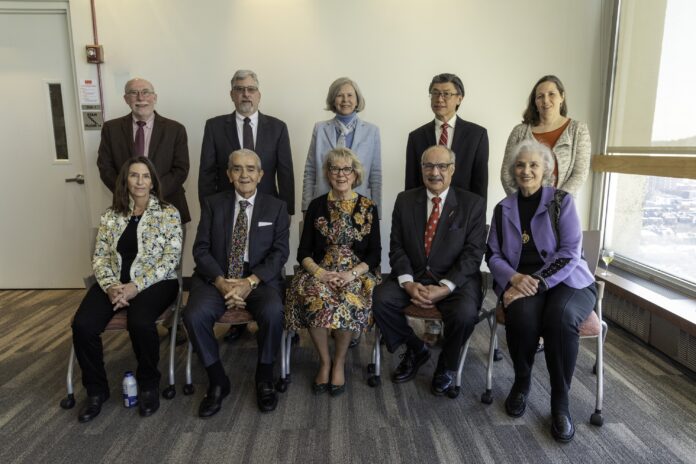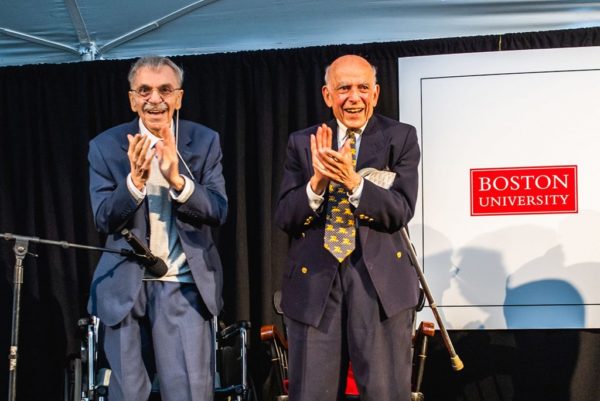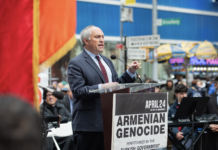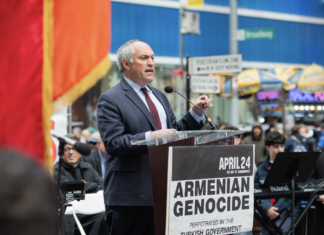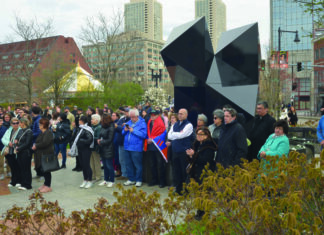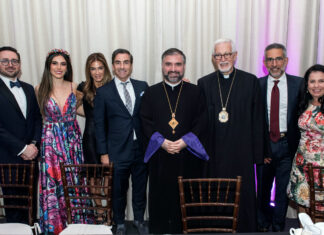By Doug Fraser
BOSTON — Five faculty at the Boston University Chobanian & Avedisian School of Medicine have been named as the newest recipients of Edward Avedisian Professorships, which are funded out of the transformational $100 million gift from the late Edward Avedisian (CFA’59,’61, Hon.’22) and his wife Pamela (Hon.’23) in 2022 that also resulted in the renaming of the school.
From the $100 million gift, $25 million was specifically designated to fund professorships. In 2023, Nancy Sullivan, the director of BU’s National Emerging Infectious Diseases Laboratories (NEIDL), and Venetia (Vanna) Zachariou, chair of pharmacology, physiology and biophysics, were installed as the inaugural professorship recipients. The ceremony to honor the second round of professorships was held on March 12.
“We’re abidingly grateful to Ed and to Pamela Avedisian for their generosity and the recognition that a great medical school is a precious renewable resource for our society and for the world,” said Boston University President ad interim Kenneth Freeman in a statement.
Toby Chai, a professor and chair of urology, was named the inaugural Richard K. Babayan, MD, Professor of Urology. Babayan, a professor emeritus and former chair of urology, retired in 2022 after 43 years at the school. A recipient of numerous awards, he was the first in Boston to do a robot-assisted radical prostatectomy in 2005.
“I’m humbled by this experience and very grateful,” said Babayan, who introduced Chai, the urologist in chief at Boston Medical Center and president of Boston University Medical Center Urologists, Inc., at the ceremony. Chai held the John D. Young Professorship in Urology at the University of Maryland School of Medicine and was vice chair of research in urology at Yale University School of Medicine.



